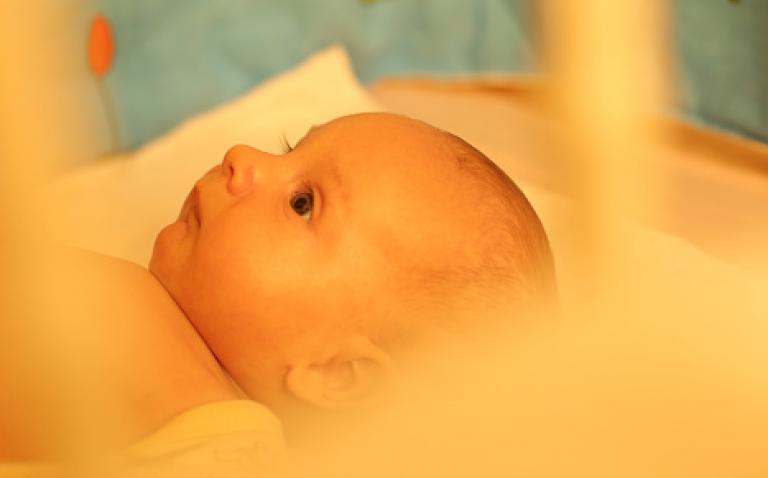Masimo has announced the findings of a recently published study in which researchers in Maastricht, Netherlands evaluated the performance of Masimo iSpO2® Rx in screening newborns for critical congenital heart disease (CCHD).1
CCHD affects approximately 2.5 to 3 newborns per 1000 live births2 and requires intervention soon after birth to prevent significant morbidity or mortality; later detection in infants also increases the risk of brain damage.3 In the study, Dr. Huizing and colleagues sought to evaluate the accuracy of iSpO2 Rx because of increasing trends toward out-of-hospital births and concerns about the costs of CCHD screening implementation in low-resource settings. The researchers surmised that a portable, low-cost pulse oximeter may be more practical in such settings than standalone hospital devices.
The researchers enrolled 201 infants in the study. CCHD screening was conducted 12-24 hours after birth by two independent teams, who were blinded to the other team’s results. Each team took both preductal (right-hand) and postductal (either foot) oxygen saturation (SpO2) measurements to establish whether an infant passed, failed, or needed a repeat screening. One team measured SpO2 using a Masimo Radical-7® Pulse CO-Oximeter® equipped with disposable Masimo LNCS® sensors. The other team used a Masimo iSpO2 Rx equipped with a reusable M-LNCS™ YI sensor, connected to an Apple iPad Mini.
Applying Bland-Altman analysis to the preductal SpO2 values of the 201 screened infants, with Radical-7 as the reference device, the researchers calculated a mean bias of -0.08% ± standard deviation of 1.76%, with limits of agreement of -3.52% and 3.36%. For postductal SpO2 values, they calculated a mean bias of -0.11% ± standard deviation of 1.68%, with limits of agreement of -3.41% and 3.18%.
In addition, to evaluate the ability of iSpO2 Rx to measure low oxygen saturation, the researchers also enrolled a group of 12 infants admitted to the neonatal intensive care unit (NICU) with SpO2 lower than 95%. SpO2 was continuously monitored for 10 minutes, with readings recorded once per minute, and with one foot connected to the iSpO2 Rx and the other to a Philips IntelliVue MP70 monitor equipped with Masimo SET® technology. Using the Philips monitor as the reference device, the researchers calculated a mean bias of 0.01% ± standard deviation of 1.74%, with limits of agreement of -3.42% and 3.43%.
The researchers concluded that, “Our data suggest that CCHD screening with the Masimo iSpO2 Rx is feasible and accurate. The use of reliable smartphone-paired pulse oximeters may contribute to the extension of CCHD screening to home births and low resource settings.” They also noted that, “The iSpO2 Rx demonstrated a high degree of agreement with the Masimo Radical-7, a hospital-grade pulse oximeter.”
The device used in this study is iSpO2 Rx. The study did not use the iSpO2, which is intended as an exercise and wellness product and is not available for use on neonates. iSpO2 is not intended for CCHD screening or any other medical use.
iSpO2 Rx does not have 510(k) clearance and is not available for sale in the United States.
References
- Huizing M, Villamor-Martinez-E, Chavagne I, Vanagt W, Spaanderman M, and Villamor E. Reliability and Validity of a Smartphone-Paired Pulse Oximeter for Screening of Critical Congenital Heart Defects in Newborns. Neonatology. 2017;112:324–329. DOI: 10.1159/000477294.
- Hoffman JL et al. The incidence of congenital heart disease. J Am Coll Cardiol. 2002 Jun 19;39(12):1890-1900.
- 2011 Legislative Report; State of Maryland, Department of Health and Mental Hygience, State Advisory Council on Hereditary and Congenital Disorders. Recommendations on Implementation of Screening for Critical Congenital Hearth Disease in Newborns. Page 7.










